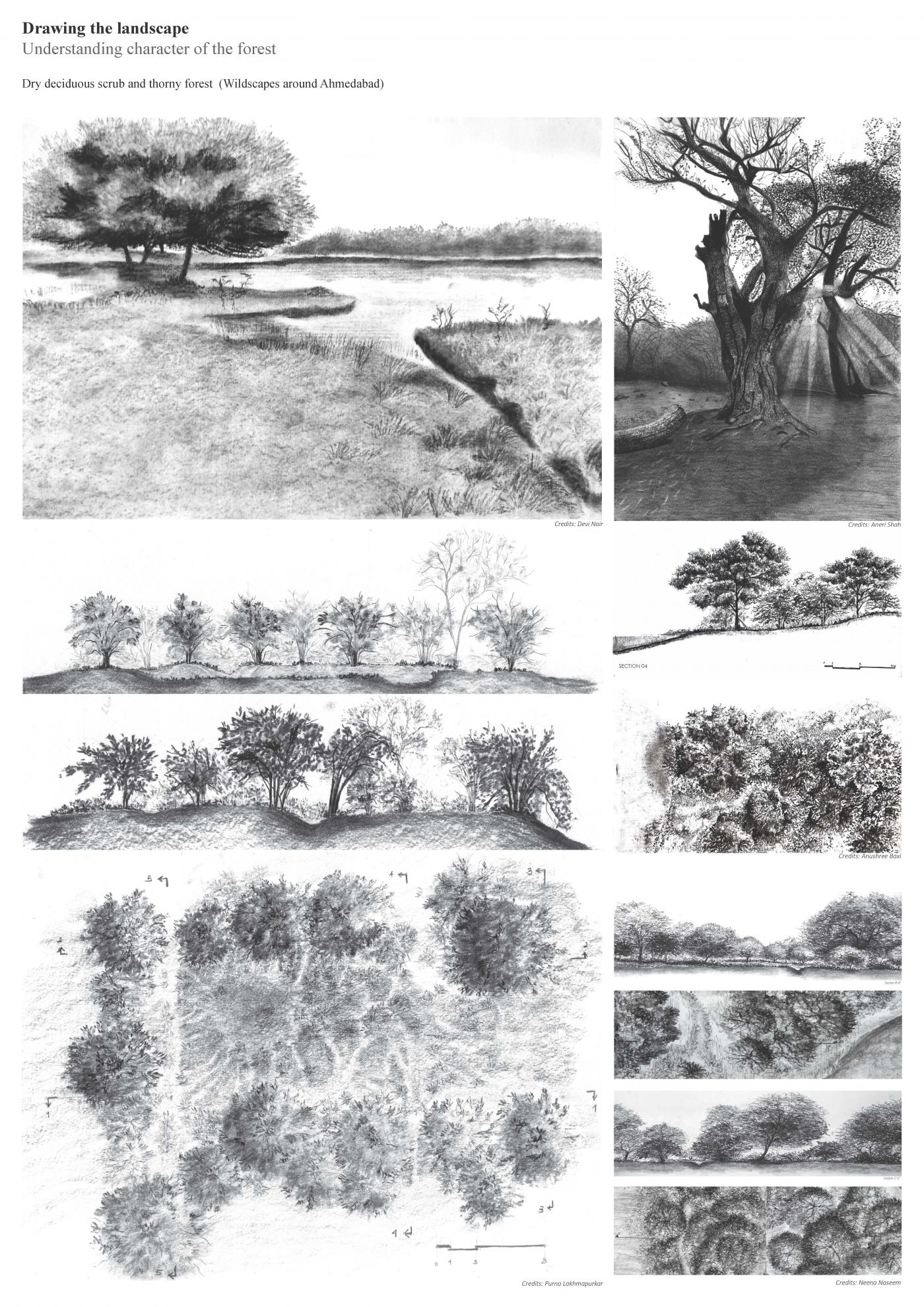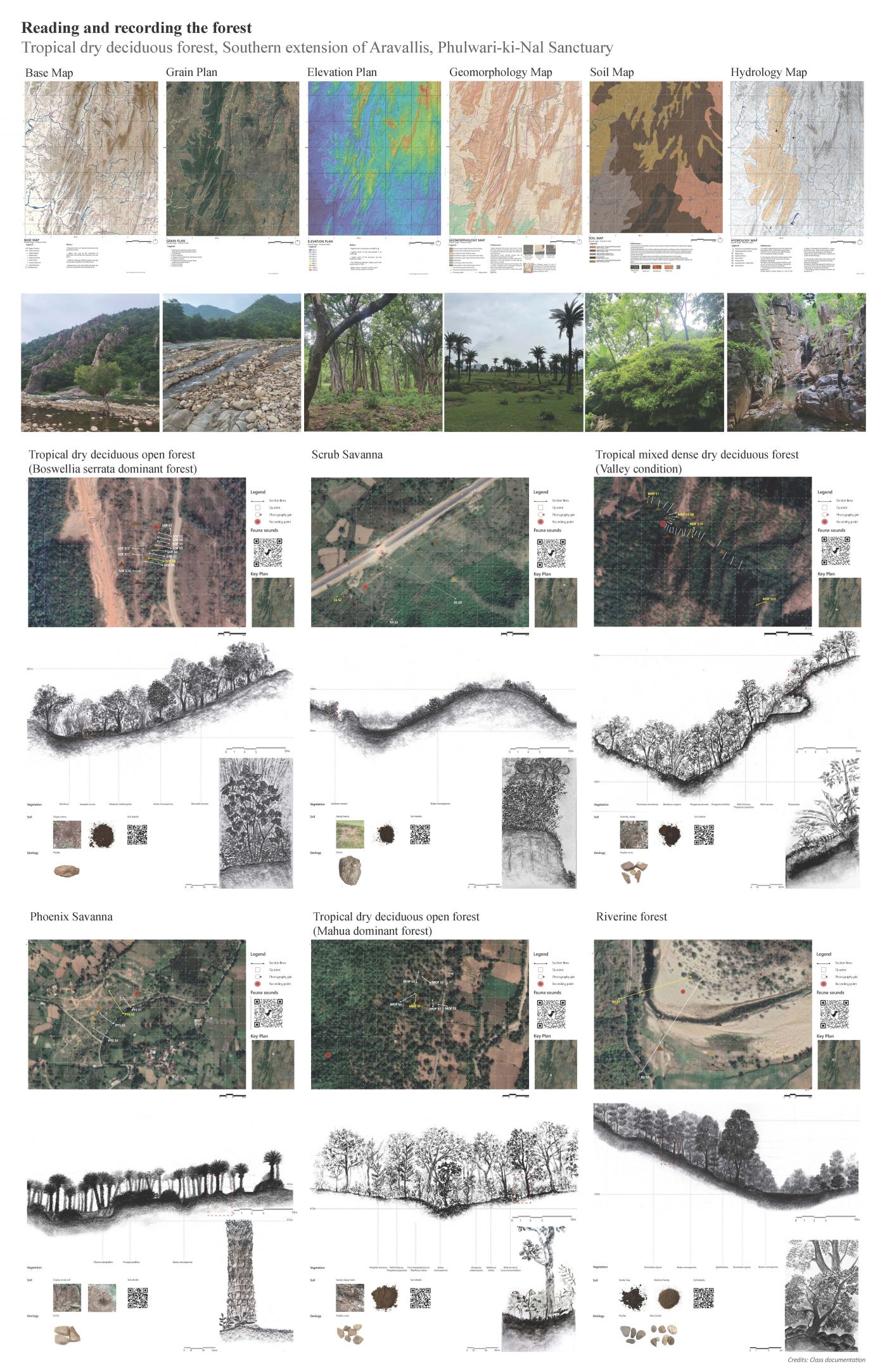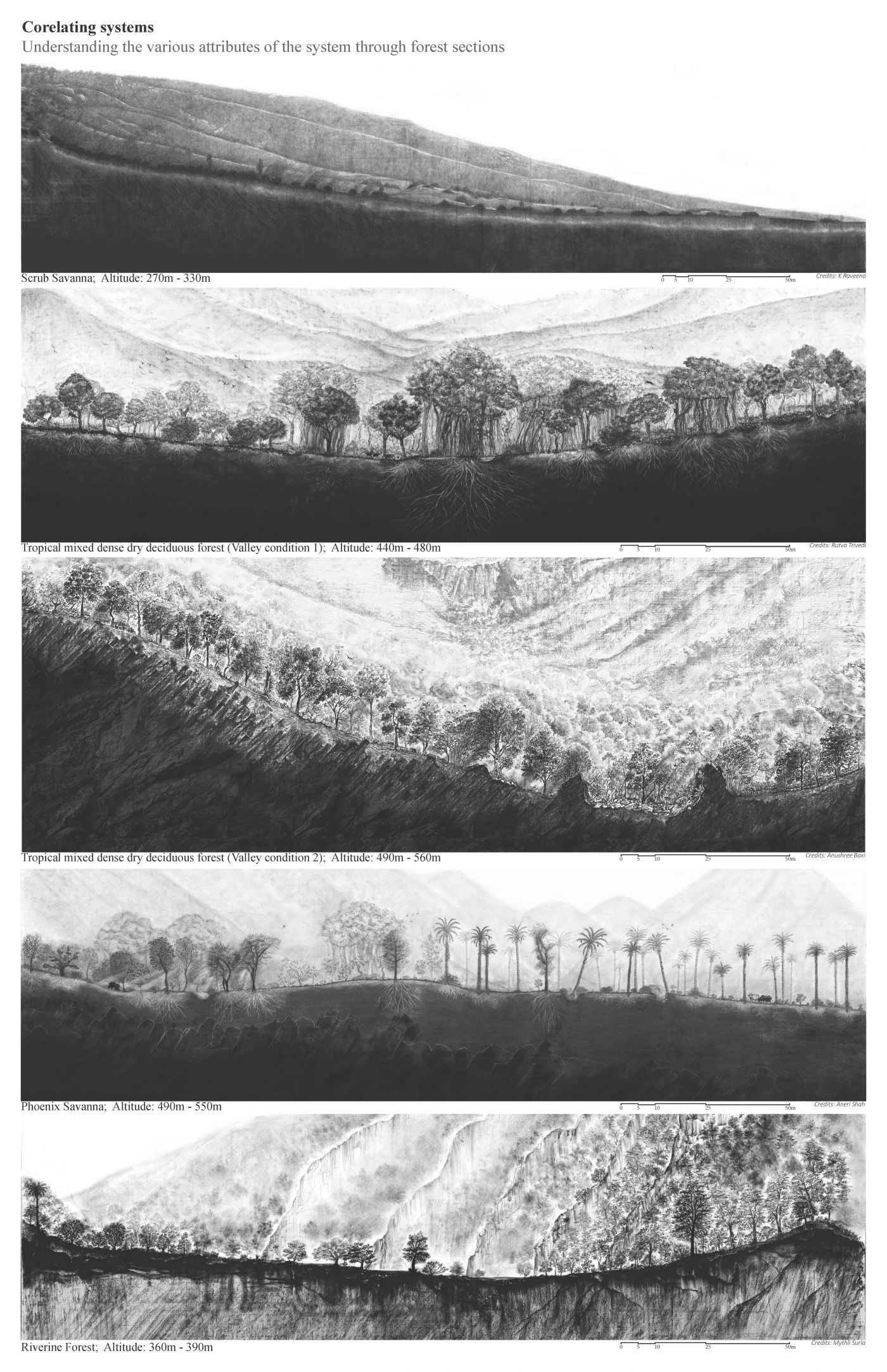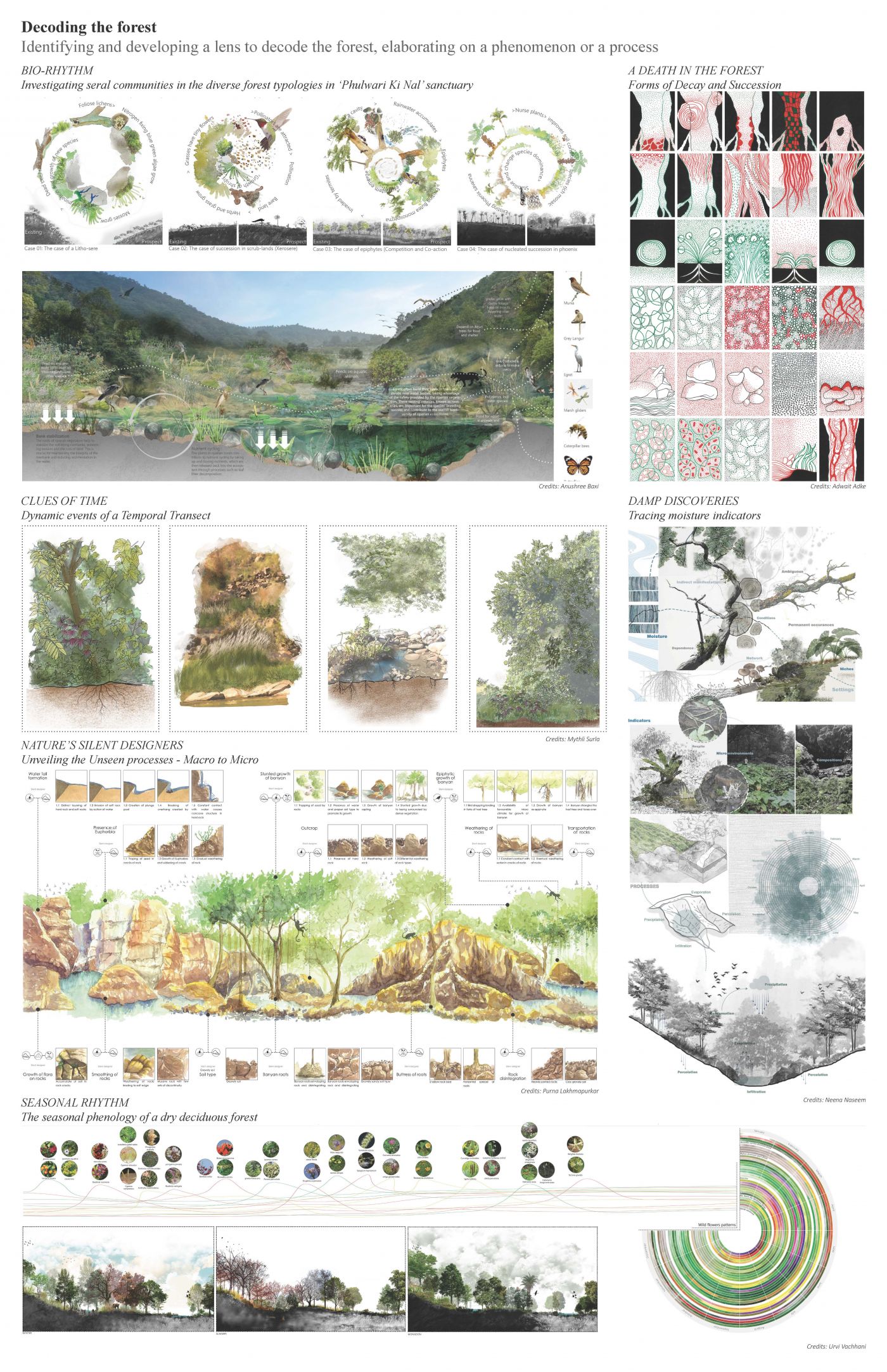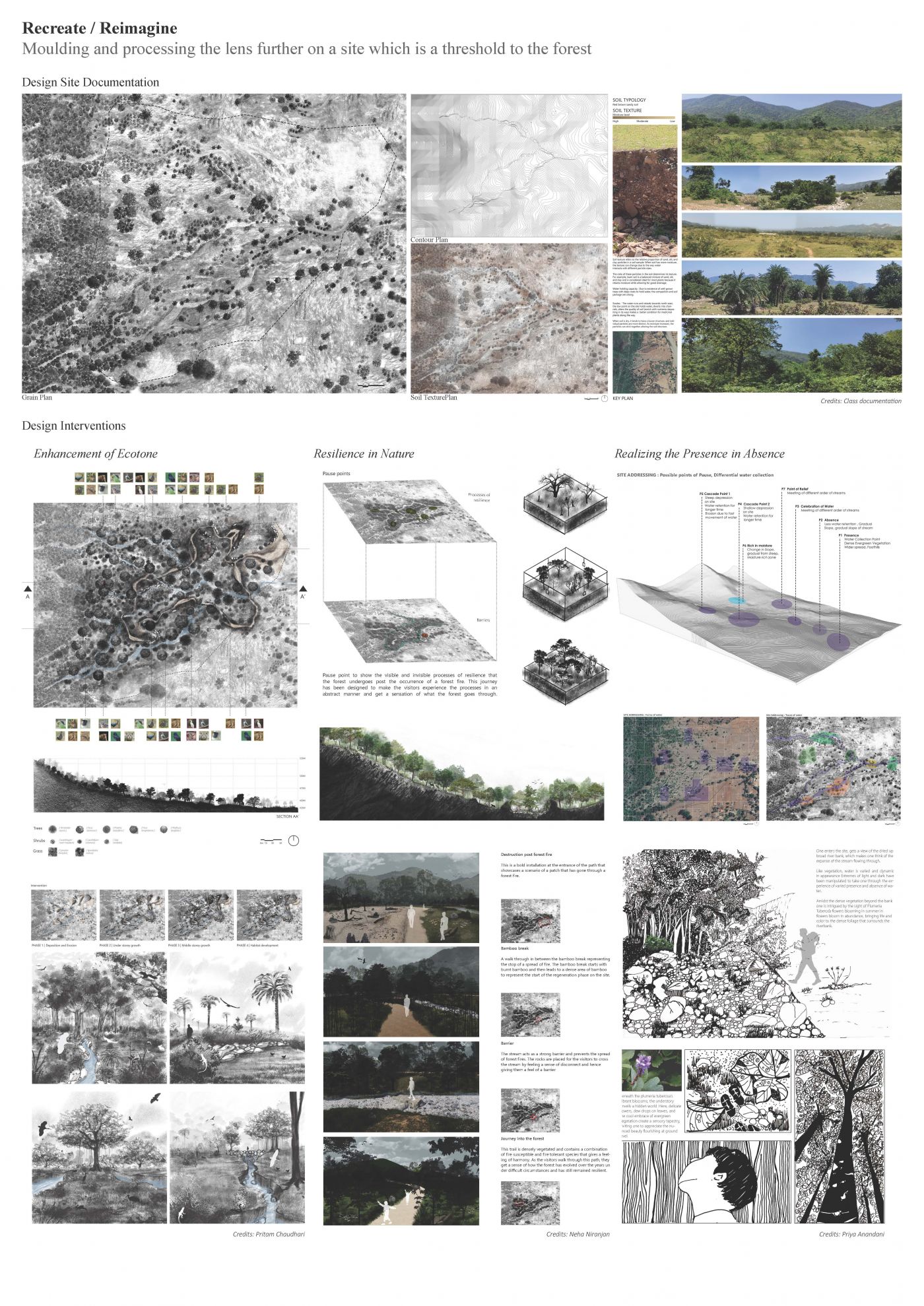Your browser is out-of-date!
For a richer surfing experience on our website, please update your browser. Update my browser now!
For a richer surfing experience on our website, please update your browser. Update my browser now!
The studio began with a fundamental premise of reading and ‘re-presenting’ a landscape. The students learned skills of representing and analysing landscapes. The studio enabled them to define, strategize and imagine a response to the landscape. Forests can be understood as relationships of geography, soil, climate and vegetation, but are more than this. The studio investigates a forest and attempts to look at it from a multidimensional perspective, looking at multiple sites to observe, investigate and develop ways of understanding.
The studio was divided into three parts:
Intervening - examining speculative and spatial ways of intervening in the forest through contextual ‘design’ explorations.
